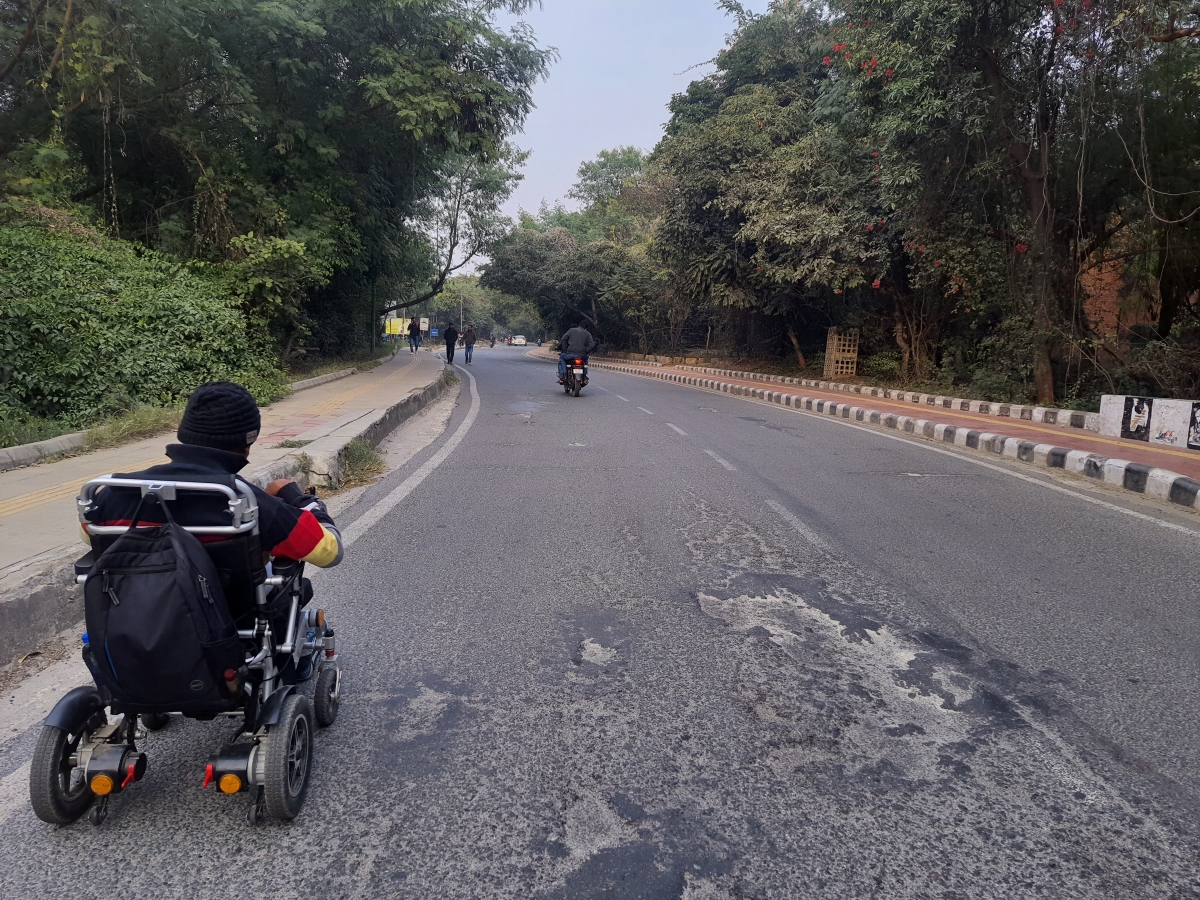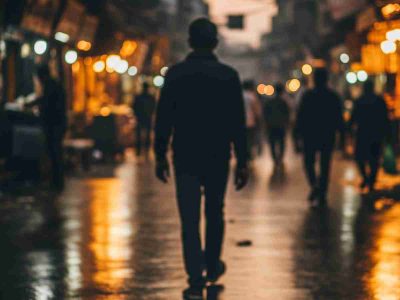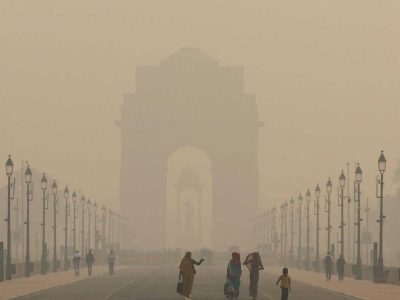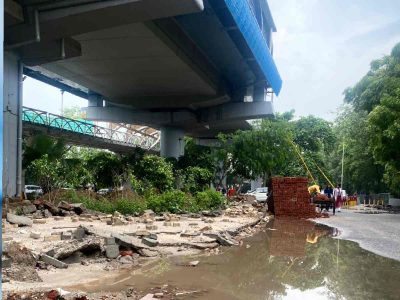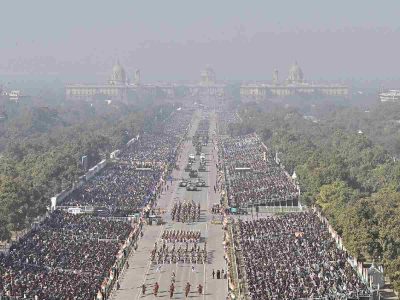The broad alley leading to Jawaharlal Nehru University (JNU) near New Mehrauli Road in New Delhi has become a challenge for differently-abled students, who struggle to navigate it due to the potholes, crevices and speed-breakers.
Their struggle to find a friendly and safe environment is limited to not just this alley but extends to the entire campus as uneven terrain, bumpy roads, lack of accessibility, and facilities, leave the likes of Shaurya Sood, a PhD student at the Centre for Political Science, at wits’ end.
Travelling in a cab from Gurgaon each day to reach the university is a task and costs him a lot. Sood, who is wheelchair-bound, finds himself helpless when he tries to deboard the cab and has to call people nearby for help.
“For me, it is difficult to move in and around the campus because there are no ramps, elevators, accessible washrooms, and roads are uneven. There is no adequate transportation through which we can travel from one corner to another; even if there is, they are not suitable for us as it is difficult to board them since the stepping boards are at an elevated height, making it difficult for a person like me,” said Sood, who is suffering from cerebral palsy.
He said the absence of street-lights adds to difficulties.
“There are no street-lights around the campus. If I have to stay till late in the library, I have to give it a second thought because it turns dark early due to the trees and the forest cover around. One can suffer accidents.”
Campuses of most universities lack proper ramps, tactile roads, elevators, and accessible facilities, rendering movement across the premises a formidable task. The absence of wheelchair-friendly infrastructure impedes not only mobility but also access to classrooms, libraries, and other facilities.
These physical barriers significantly hamper their mobility on campus, making it challenging for them to attend classes, access facilities, or participate in extra-curricular activities.
Sood said angrily, “The infrastructure and facilities available for the differently-abled are illusions only. There is no inclusivity. We have to be dependent on others on the campus for everything. Some provide help, some don’t. It feels like a burden. The campus is not disabled-friendly, and every day we have to struggle.”
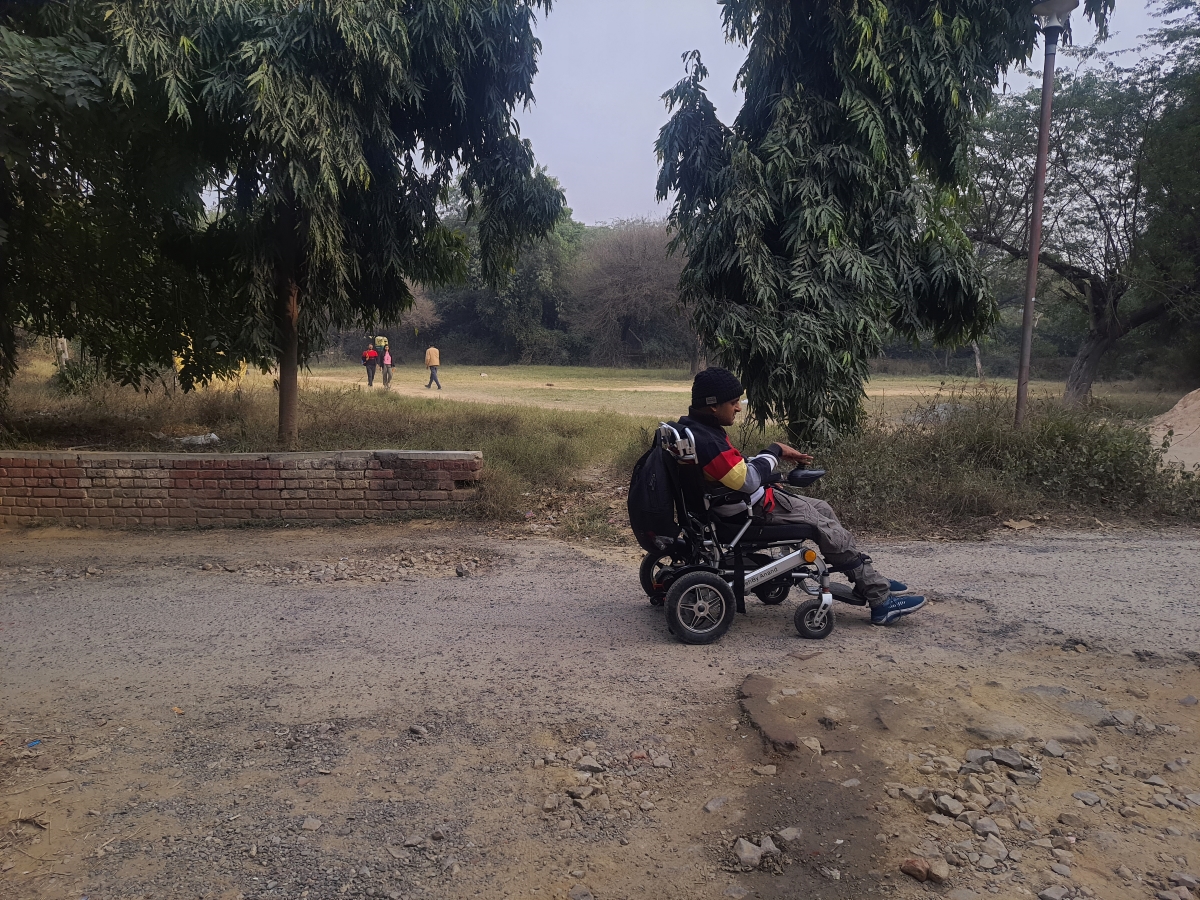
He laments the lack of tactile pavements connecting the main road with the departments and libraries, as also the lack of lifts or ramps in the buildings which host the departments.
“The central library lift closes at 5 pm, leaving students with disabilities in distress.”
The library stays open until 11 pm.
“Besides, libraries and canteens are located in the basement, making them inaccessible to us. There is neither a lift nor a ramp there. Because of this, we have to go somewhere else for food. One can also see that tactile tiles are installed at some places, but unfortunately, they are occupied by parked vehicles or are in out-of-bounds areas,” Sood added.
The campus is also not safe for the visually impaired.
Zainab Tariq, who is a PhD student at the Centre for Political Science at JNU and is visually impaired, said, “There are many hurdles that we face as visually impaired. It is hard to navigate without tactile roads. We lose directions, and sometimes hurt ourselves due to rocky roads.”
Dogs also add to the problems.
“There is a large presence of dogs on the campus. I am always afraid that they may bite me because there have been such incidents with other students. In terms of accessibility and facilities, the campus needs to improve its infrastructure and provide adequate facilities so that we do not feel left out.”
The disabled students also often struggle due to lack of academic support. While some universities have resource centres for students with disabilities, the available support services are often insufficient.
Specialised assistive technology, accessible learning materials, or personalised academic modifications are not readily provided which hinders their educational experience.
Tariq added, “There is a shortage of PwD-friendly toilets and an absence of sign language boards on the campus. During exams, the university administration does not provide scribes to students suffering from blindness, cerebral palsy, and other such ailments. We have to manage on our own. It is tough to find people to write our exams, which affects us mentally and academically.”
Ramesh Patak, a master’s student in the sociology department at JNU, suffers from locomotor disability.
He complained, “If I have to go towards Ganga Dhaba and Sabarmati Dhaba, I face challenges like potholed paths, rocks, and uneven roads. This deters differently-abled students from enjoying the campus life, which is heartbreaking.”
Grimacing, Patak added, “Not just the dhabas, but guest-houses are also inaccessible to everyone either due to staircase or unavailability of lifts. It is insulting to seek help every time. The authorities should look into our concerns, which they do not.”
Not only JNU, differently-abled students at Jamia Millia Islamia and Delhi University face similar situation. Complaints have fallen on deaf ears.
Nida Ashai (name changed), a final year M.Tech. student at Jamia Millia Islamia who is partially paralysed, said, “Entering some of the departments on the campus requires climbing a very steep ramp, which can cause the wheelchair to tip backwards if there is any lag in strength.”
She said that there are only a few departments in Jamia that have ramps.
“The same is the case with libraries and classroom buildings. Every time we have to fight bias and raise our voice. But who will listen to us?”
Ashai added, “If universities are admitting us, then there should be facilities for us.”
Though Delhi University calls itself disabled-friendly, the differently-abled students say the campus lacks sensitivity, awareness, and inclusivity, and in the last few years, there has been no genuine effort to improve facilities.
According to the differently-abled students, the campus lacks sensitivity, awareness, and inclusivity, and in the last few years, there has been no genuine effort to improve facilities.
Amrita Malhotra, a bachelor’s student in the humanities department of one of the colleges at Delhi University, said, “The university should create a barrier-free environment for people with disabilities. Apathy towards us is such that colleges, departments, libraries, and hostels lack basic facilities such as ramps, signage, adequate lighting, and accessible toilets.
“Absence of lifts, Braille books, and specialised software for visually impaired students creates barriers to accessing education. Not only that, tactile roads and warning blocks are also missing in the colleges. Classrooms in most colleges at DU are accessible to us but spaces like canteens, common rooms, and laboratories are inaccessible,” added Amrita, who is visually impaired.
She blamed the colleges for their priorities.
“The colleges have funds for beautification, but they do not have anything to make them accessible to us.”
Differently-abled students in universities in Delhi also face social stigma and discrimination. The prevailing societal attitudes and lack of awareness about disabilities contribute to an atmosphere of apathy.
These students often encounter discrimination, isolation, or bullying, which not only affects their academic performance but also their mental well-being.
“I was once bullied by my classmates because of my disability. I stopped coming to the college for nearly a month because of that. My family convinced me and supported me during this time saying that I should not let disability become a hurdle. It is not a sin to have a disorder; we are normal humans and only one of our body parts is defective due to which we are being ignored,” said Amrita further.
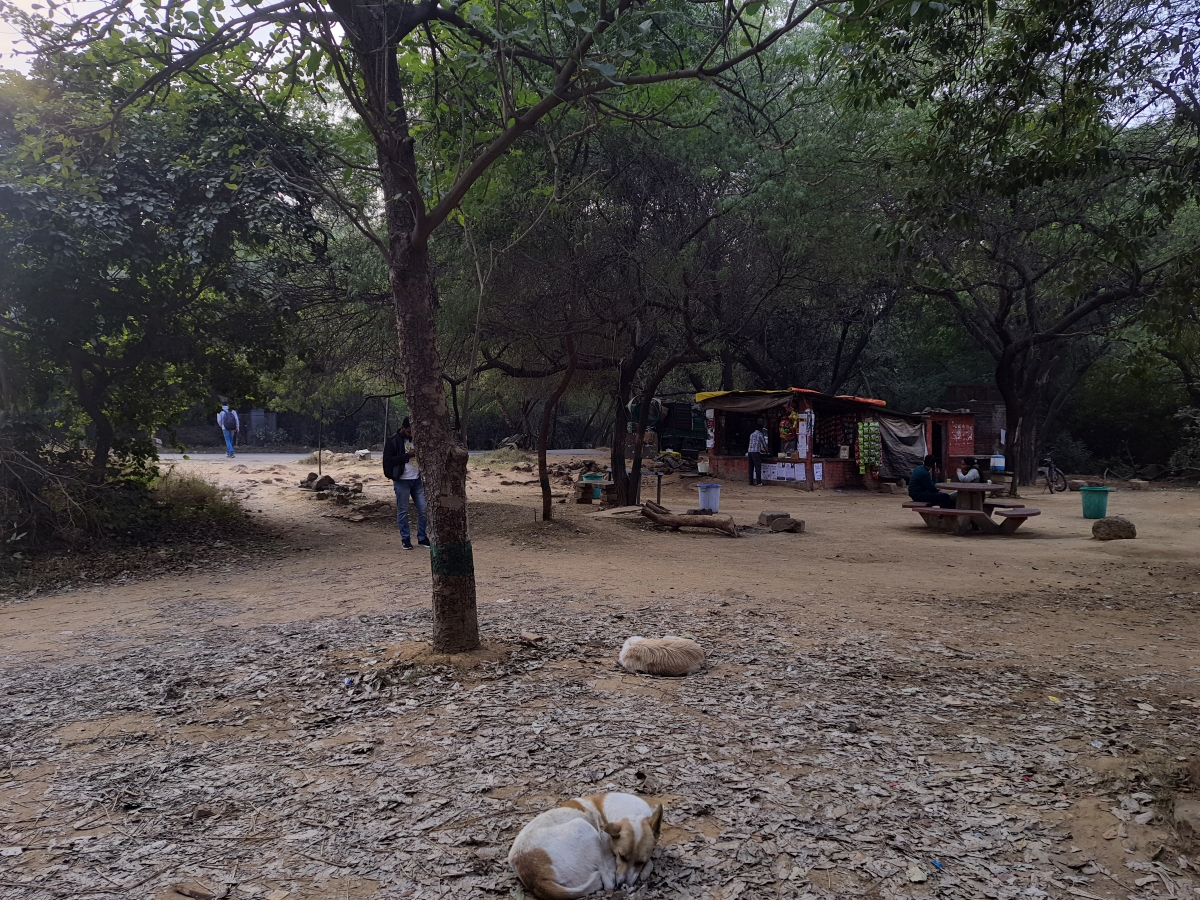
She called for campaigns for sensitisation and awareness and wants organisations to help to ensure access and proper opportunities.
The DU administration did not respond to query from Patriot. The JNU and JMI administrations said they are working on the problems and grievances that reached them. They said they are trying to make the campus disabled-friendly and safe.
Many differently-abled students said that the universities need a shift towards inclusivity to create an environment where students can pursue education without unnecessary obstacles. They want the universities to address problems related to physical accessibility, academic support, social stigma, and policy enforcement so that the institutions can become welcoming spaces for all students with various disabilities.

